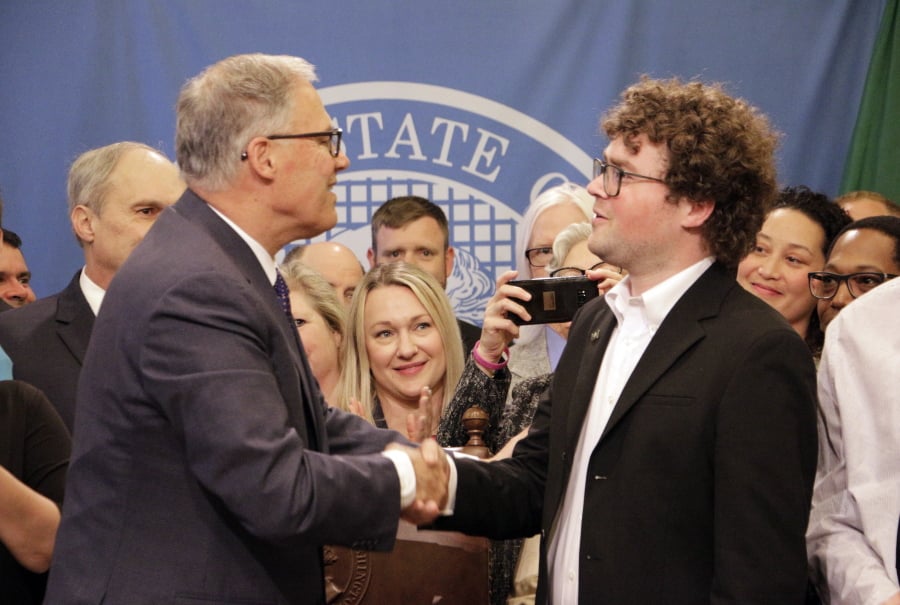OLYMPIA — Gov. Jay Inslee on Thursday signed a group of bills hoped to improve the state’s troubled behavioral health system, including measures for a new teaching hospital in Seattle.
The teaching hospital measure, sponsored by longtime former Democratic House Speaker Frank Chopp, directs University of Washington officials to plan a new facility focused on training medical students to enter the broader behavioral health field, which includes both mental health and substance abuse treatment.
A separate measure from Sen. Manka Dhingra, D- Redmond, responds to the Trueblood decision, in which federal courts found the state to be leaving people found incompetent to stand trial waiting in jails for unconstitutional lengths of time. The measure assigns impartial “forensic navigators” to shepherd them through competency restoration treatment and expands diversion efforts.
Inslee signed the bills at a ceremony in the state Capitol.
“Key to these efforts is treating the individual holistically and increasing the needed services to make it easier to recover,” Inslee said. “Getting people the help they need in their communities, close to their families and support systems is also crucial to success.”
Collectively, the bills aim to address strain in — and federal action against — the state’s troubled mental health system, which along with the Trueblood decision has been marked by long wait times for other services and the revocation of federal funding for one of the state’s two main psychiatric hospitals over issues including assaults and escapes.
Dealing with the issue was a point of relative bipartisan consensus during the Legislature’s 105-day session.
Along with the bills related to the teaching hospital and Trueblood case, Inslee also signed a measure aimed at expanding the state’s overall mental health care capacity by creating a network of new and expanded community facilities.
Adding capacity
Sponsored by Rep. Joe Schmick, R-Colfax, but requested by Inslee, the bill envisions three new areas where treatment capacity would be added in communities around the state: Intensive residential facilities, medium-term treatment facilities, and peer support centers.
The residential facilities would take patients including those given partial releases from the state hospitals, who don’t qualify for civil commitment but still need full-time care, as well as others who need long-term care.
The intermediate facilities would focus on treatment of individuals held on 90- or 180-day orders for treatment; the peer facilities would function more like drop-in day centers, with guides to connect people with resources.
Funding to set up the first of the facilities is contained in the state’s two-year budget, which Inslee hasn’t signed yet.
About $8 million is set aside for four residential facilities, along with $5 million for at least four peer respite facilities and a separately funded pilot program for a drop-in mental health facility, while the intermediate facilities would be set up in or attached to existing community hospitals via an expedited process.
Along with the facilities called out in Schmick’s bill, the budget also contains $20 million to start work on a 48-bed, partially state-run facility, which will ultimately be part of the larger mental health network, said Sen. Sen. David Frockt, D-Seattle, the chief capital budget writer for Senate Democrats.
The teaching hospital measure aims to address a shortage of trained specialists that advocates say is a major contributing factor in problems with the state’s behavioral health care system. The facility is slated to bring as many as 150 beds online, although many details have yet to be determined.
Chopp has said the facility will likely take the form of a new building at one of three sites: the university’s existing medical center campus in Seattle, Harborview medical center, and Northwest hospital in North Seattle.



